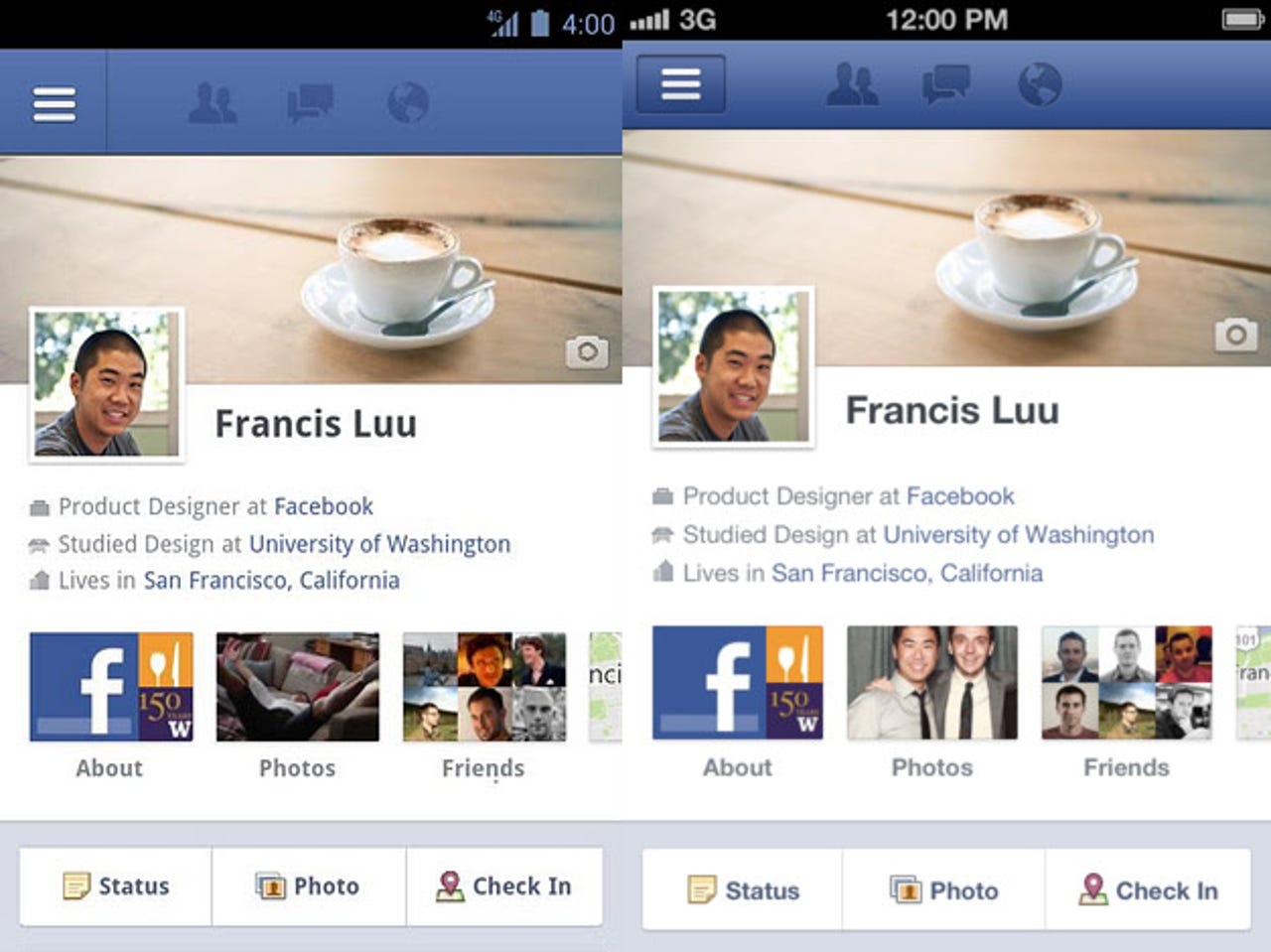Facebook for Android passes Facebook for iPhone (DAU)

Facebook for Android has finally passes Facebook for iPhone in daily active users (DAU). The two were more or less tied head-to-head this week, but today the Android app has 58.8 million DAU while the iPhone app has 57.6 million DAU, according to AppData (1, 2). Put another way, the most popular app on Android is now more popular than the most popular app on iPhone.
Facebook for Android still has fewer monthly active users (MAU) than Facebook for iPhone: 86.1 million versus 99.5 million, respectively. On the flipside, this means a larger percentage of Android users are returning to use the app daily (68.3 percent) compared to iPhone users (57.9 percent). In other words, of the Android and iPhone users who have the official Facebook app, the former uses it more frequently than the latter.
The iPhone was first released in July 2008. More than a year later, the Android app followed with its first version in September 2009. Ever since, Android has been slowly trying to catch the iPhone version, but it's taken a while: over two years.
Unlike other platforms, Facebook develops the apps for iOS and Android. For iOS, Facebook has long-supported the iPhone and iPod touch, and only started supporting the iPad two months ago. For Android, Facebook is currently only supporting smartphones and has said nothing about tablets.
Android users often complain about the state of the Facebook app, although it is getting better. Now that the Android version is eclipsing its iPhone counterpart, maybe Facebook will devote more development resources towards it.
Until recently, the iPhone version would get a feature first, and only much later would the Android app get it as well. This month is the first time that I remember Android getting a feature first: Mobile Timeline. Android got it earlier this week and iPhone got it today. Is this a new trend Android users can start to expect?
See also:
